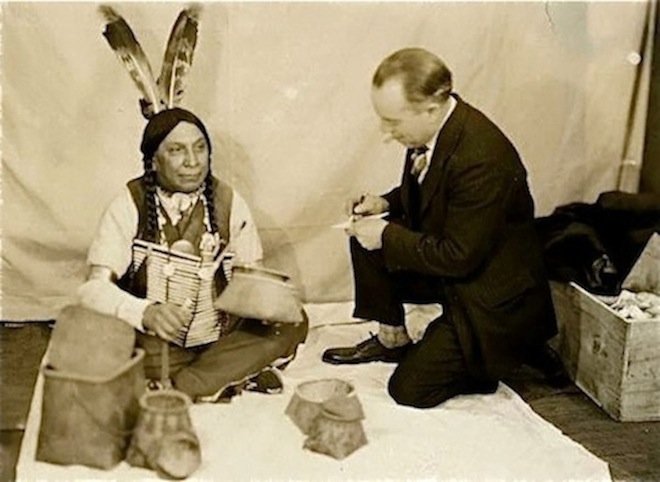Monday, February 16, 2015 - 3:30pm
Claudia Cohen Hall, University of Pennsylvania, Philadelphia, PA

"Indigenous Anthropologists: Restoring the Histories of Frank Speck's Native American Collaborators"
Talk by Dr. Margaret Bruchac for the History of Sociology and Science Department
During the salvage anthropology era, Frank Gouldsmith Speck, of the University of Pennsylvania, was one of the most prolific contributors to the ethnographic archive. His Native American informants---from Mohegan speaker Fidelia Fielding to Lenape Medicine Man Witapanoxwe---are often imagined to have been naïve elders parting with dying langages and fragile relics. Speck’s success was so uncanny that Loren Eisely called him a “shaman,” and John Witthoft surmised he had been adopted by the Indians. These fictive identities, however, conceal a more intriguing reality: Speck sought to Indigenize anthropology by transforming an inherently cannibalistic enterprise into a collaborative performance. Close examinations of his manuscripts and correspondence---when placed alongside the papers of Gladys Tantaquidgeon (Mohegan), Alexander General Deskaheh (Cayuga), and other informants---reveal the influence of Native intellectuals who were neither passive nor naïve. They actively participated in constructing Indigenous representations in the museum and on the world stage. The narratives of their lives and contributions shed light on dramatic shifts in anthropological field methods, and add critical context to the museum objects that Speck collected.
Dr. Margaret M. Bruchac, of Abenaki Indian ancestry, is an Assistant Professor of Anthropology, Associate Professor in the Penn Cultural Heritage Center, Consulting Scholar to the American Section of the Penn Museum, and Coordinator of the new Native American and Indigenous Studies Initiative at Penn. The subject of this talk draws upon her book manuscript---titled Consorting With Savages: Indigenous Informants and American Anthropologists---forthcoming from the University of Arizona Press.

 Native American & Indigenous Studies at Penn
Native American & Indigenous Studies at Penn